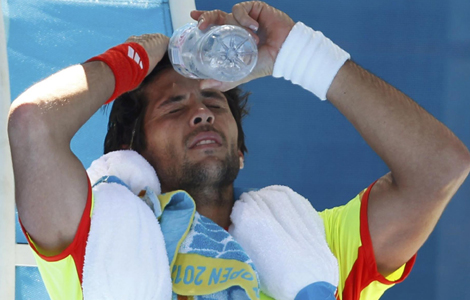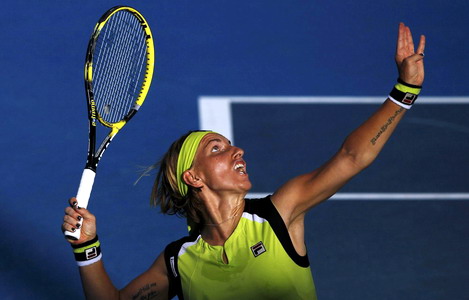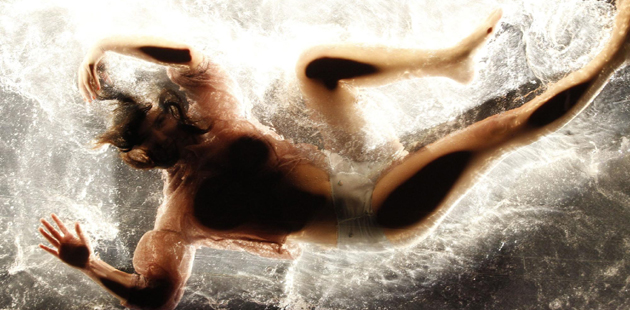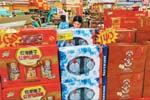China's healthcare firms seek business in Gulf Arab
Updated: 2012-01-26 11:43
(Xinhua)
|
|||||||||
DUBAI - About 350 Chinese medical companies are participating the ongoing Arab Health Congress in Dubai, aiming to flood the Middle East with their products, as the region is developing fast in relation to health care services.
The four-day event, the largest of its kind in the Middle East and North Africa, hosts 3,000 firms from 70 countries, including representatives from over 30 country pavilions in the Dubai World Trade Center. The Chinese pavilion is the largest country cluster at the congress.
"We have been participating at the Arab Health congress since the foundation of Bowin Medical in 2008," Tony Chang, sales manager at Bowin in Shanghai, told Xinhua. Bowin, a combined word of "both win" -- claiming that the customer and the company win, produces Surgical Lighting System on Halogen basis.
In 2011, the firm generated $3 million turnover and hopes to increase its market share in the region.
Visitors of the Arab Health praised Chinese products for their low prices. Salim Iqbal, a distributor form Lahore, Pakistan, told Xinhua that items like bandages, wheelchairs or dialyze machines from Europe or North America are 200 percent higher in price than those from China.
Dr. Hamid AL-Shekwan, a pharmacist from Madina, Saudi Arabia, pointed out that not only the price is right but also the service. "Chinese firms even deliver small quantities of lab equipment, fast and very flexible, while the delivery process from Western countries is more complicated," he said.
Like all major fairs, the Arab Health attracts professional visitors from all over the world. Maxwell Utorh, a chemist from Ghana's capital Accra said he had spent "a lot of time at the Chinese pavilion. People are friendly and consult very professionally."
The vast majority of participating Chinese firms do not run offices in Dubai but rather see the congress as an opportunity to sell their products to hospitals, laboratories or clinics. This strategy keeps Chinese products cost-competitive.
Andy Wen, Sales Representative at Ningbo David Medical Device Co. from Zhejiang province of China, uses the fair to look for distributors in the United Arab Emirates (UAE), so that Ningbo David can sell its baby incubators to hospitals with gynecology departments.
Nevertheless, Dr. Ayesha Abdullah, managing director of Dubai Health Care City (DHCC), a free zone for hospitals and clinics, told Xinhua that Tong Ren Tang from Beijing and Emirates Integrated Medicine, a clinic led by a Chinese, have established branches in the DHCC.
"Alternative Chinese medicine, like acupuncture treatments, becomes more and more popular in the Middle East, as people look for ways to avoid pharmaceuticals and surgery whenever possible," Abdullah said.
DHCC, founded in 2006, hosts nowadays over 70 medical facilities and 2,500 doctors, nurses and pharmacists.
In order to attract more medical firms from the Far East, "we from the DHCC travelled to conduct a road show in Beijing at the end of 2011 and the interest was tremendous. We are confident that the UAE will see more hospitals and clinics from China in the near future," Abdullah said.
The Arab Health 2012 was kicked off on Monday and runs until Thursday, expecting 70,000 visiting medical professionals.








